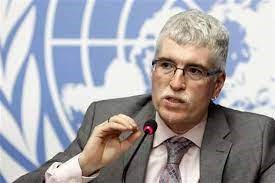
Maxx Dilley, Director, Climate Services, WMO
The World Meteorological Organization (WMO) Executive Council, in its 72nd session in September 2020, reaffirmed the importance of strengthening the operationalisation of the Climate Services Information System (CSIS). The CSIS is the operational component of the Global Framework for Climate Services (GFCS) through which information about climate (past, present and future) is routinely collected, stored and processed to generate products and services that inform decision-making across a wide range of climate-sensitive activities and enterprises.
Under the Executive Council-approved plan, the Regional Climate Outlook Forums (RCOFs), which have long been key mechanisms for GFCS implementation, are expected to coordinate the operationalisation of objective seasonal forecasting techniques on sub-regional scales and to generate a “Next Generation” of traceable, reproducible, and verifiable objective seasonal predictions, based on multi-model ensembles from dynamical climate models. Such new climate products will be used to further enhance country-level capacity to produce and deliver tailored products and services for decision support in climate sensitive sectors such as water, agriculture, health, renewable energy and disaster risk reduction that address national and sub-regional priority needs identified in countries’ Nationally Determined Contributions (NDCs) to the Paris Agreement in Africa, Asia and South America.
FOCUS-Africa project is supporting the climate services operationalisation plan in the southern part of Africa by implementing key aspects to the WMO workplan. The FOCUS-Africa consortium includes the WMO-designated Regional Climate Centre (RCC) in Africa, ACMAD, and the National Meteorological and Hydrological Service (NMHS) of Malawi. The project is closely collaborating with the NMHSs of Tanzania, Mauritius, South Africa and Mozambique to:
(a) Access, use, verify, exchange, analyse and interpret high-quality, relevant and skillful probabilistic seasonal forecasts and climate scenarios at regional and national levels;
(b) Co-develop and co-design, with climate information users, tailored climate information-based products and services at a sub-regional scale for Africa, in support of decision-making in sensitive sectors: water, food security, energy and infrastructure;
(c) Communicate information at country level and educate users and stakeholders on probabilistic seasonal forecast-based products;
(d) Assess the socioeconomic benefits generated in the mentioned sectors.
FOCUS-Africa is an innovative example of an approach to link together all the CSIS components and support the full climate services value chain to meet the specific needs of stakeholder groups in Africa (e.g., governmental agencies, farmers, energy planners and providers, water resource managers). In this context, the project will guide WMO Members on how to consolidate their resources, adopt standardised good practices, share data and knowledge within the region, as well as with the relevant global entities in order to provide advanced climate services.

